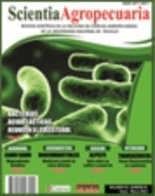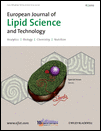
OCL-Oilseeds and Fats Crops and Lipids
metrics 2024
Elevating Standards in Agronomy and Biochemistry
Introduction
OCL-Oilseeds and Fats Crops and Lipids is a renowned open-access journal published by EDP Sciences S A, specializing in the fields of agronomy, food science, and biochemistry. Since its inception in 2000, this journal has vigorously contributed to the advancement of research surrounding oilseeds and fats, addressing critical issues related to crop production, lipid analysis, and sustainable practices in food science. With an impressive impact factor reflected in its 2023 rankings—Q2 in Agronomy and Crop Science, Q3 in Biochemistry, and Q2 in Food Science—OCL stands out for its rigorous peer-review process and commitment to disseminating high-quality research. Its Scopus rankings further establish its reputation within the scientific community, occupying the 73rd and 64th percentiles in Agronomy and Food Science, respectively. This makes it an essential platform for researchers, professionals, and students focused on enhancing the understanding and application of lipid science and oilseed cultivation. Located in France, OCL encourages a global dialogue on innovations and discoveries that can drive the future of agricultural production and food technology.
Metrics 2024
 0.41
0.41 1.80
1.80 2.00
2.00 37
37Metrics History
Rank 2024
Scopus
IF (Web Of Science)
JCI (Web Of Science)
Quartile History
Similar Journals

Rivista Italiana delle Sostanze Grasse
Exploring the Chemistry of Fats and OilsRivista Italiana delle Sostanze Grasse is a prominent journal in the field of Organic Chemistry, published by INNOVHUB SSI-AREA SSOG in Italy. With an ISSN of 0035-6808, this journal serves as a crucial platform for disseminating cutting-edge research and innovation related to fatty substances and their applications in various industries. Though its impact factor is yet to be established, it holds a notable position in the 2023 Scopus Rankings, being categorized in the Q4 quartile for Organic Chemistry, ranking #197 out of 211 journals in this field. The journal's converged years span from 2006 to 2024, showcasing a commitment to ongoing scholarly discourse. Researchers, professionals, and students alike value this journal for its rich contributions to understanding the chemistry behind oils and fats, and the latest advancements in substances relevant to food science, pharmaceuticals, and sustainable practices. While the journal is not currently open access, it is a critical resource for those seeking to expand their knowledge on the intricate roles of organic compounds in various applications.

POTATO RESEARCH
Transforming agriculture, one potato at a time.POTATO RESEARCH is a prestigious journal dedicated to advancing the scientific understanding of potato cultivation and its wider implications in the fields of agronomy, crop science, and food science. Published by Springer in the Netherlands, this journal boasts an impressive impact factor and ranks in the Q2 category for both Agronomy and Crop Science, as well as Food Science in 2023, affirming its significant contribution to these disciplines. With over five decades of research converged from 1970 to 2024, POTATO RESEARCH serves as a vital platform for researchers, professionals, and students interested in the latest findings and innovations that affect potato production and processing. Although it is not an open-access journal, it remains a crucial resource for those dedicated to enhancing agricultural sustainability and food security. For inquiries or submission details, please refer to their office located at Van Godewijckstraat 30, 3311 GZ Dordrecht, Netherlands.

PAKISTAN JOURNAL OF AGRICULTURAL SCIENCES
Cultivating Knowledge for Sustainable AgricultureWelcome to the Pakistan Journal of Agricultural Sciences, a prominent platform for disseminating vital research findings in the fields of agronomy, crop science, food science, plant science, and soil science. Published by the prestigious University of Agriculture in Faisalabad, this journal aims to enhance the scientific discourse surrounding agricultural innovation and sustainability in Pakistan and beyond. With an ISSN of 0552-9034 and E-ISSN of 2076-0906, the journal serves as a valuable resource for researchers, professionals, and students interested in cutting-edge agricultural developments. As of 2023, the journal is ranked in the Q3 category for Agronomy and Crop Science as well as Food Science and positioned in Q4 for Plant and Soil Science, highlighting its growing impact within a competitive academic landscape. While the Pakistan Journal of Agricultural Sciences is not currently open access, it provides a comprehensive archive of research converging from 2011 to 2024, ensuring that critical knowledge remains accessible to those striving to advance the agricultural sciences. Join us in our mission to foster innovation and support sustainable practices in agriculture.

Scientia Agropecuaria
Fostering excellence in agricultural research and practice.Scientia Agropecuaria, an esteemed journal published by the Universidad Nacional de Trujillo’s Faculty of Agricultural Sciences, is dedicated to advancing research in the fields of Agronomy, Animal Science, and Soil Science. With a rich heritage since its inception, the journal has embraced Open Access since 2010, ensuring global dissemination of knowledge to researchers and practitioners. Hailing from Trujillo, Peru, it plays a vital role in the scientific community, capturing a Q3 ranking across multiple categories in the 2023 category quartiles, which reflects its growing influence, supported by its commendable Scopus percentile rankings. The scope of the journal is to publish original research, reviews, and insights that address critical issues and innovations in agriculture and related fields, making it a key resource for researchers, professionals, and students aiming to stay abreast of cutting-edge developments. As the journal continues its convergence until 2024, it remains an important platform for impactful contributions to the agricultural sciences.

Journal of Oil Palm Research
Pioneering Insights into Oil Palm Agronomy and SustainabilityJournal of Oil Palm Research is a pivotal publication in the field of agricultural science, specifically focusing on the multifaceted aspects of oil palm cultivation, research advancements, and sustainability practices. Published by the MALAYSIAN PALM OIL BOARD, this journal serves as a significant platform for disseminating high-quality research and innovative solutions in oil palm agronomy, genetics, and socio-economic impacts, capturing the interest of researchers, industry professionals, and students alike. With an E-ISSN of 2811-4701, the journal is committed to presenting peer-reviewed articles that aim to enhance the understanding of oil palm's role in global agriculture and its contributions to environmental sustainability. The absence of a traditional access fee underscores its dedication to open access principles, fostering broader dissemination of knowledge. As the oil palm industry continues to evolve amidst environmental and market challenges, the Journal of Oil Palm Research remains essential for those dedicated to this field, offering insights that inform practice and policy.

AGRONOMIA MESOAMERICANA
Championing open access to enrich the agronomy landscape.AGRONOMIA MESOAMERICANA is a distinguished open-access journal published by UNIV COSTA RICA, dedicated to advancing knowledge in the fields of agronomy, crop science, food science, and soil science. Since its inception in 1990, the journal has provided a platform for researchers and professionals to disseminate their findings, contributing significantly to the agricultural sciences. With an E-ISSN of 2215-3608, it operates from Costa Rica, specifically from the Centro Investigaciones Agronómicas, situated in San José. Despite its current classification in the Q4 quartile for 2023 in the respective fields, it aims to stimulate academic discourse and inspire innovative solutions to pressing agricultural challenges. The journal attracts a diverse audience and encourages submissions that focus on sustainable practices, food security, and environmental stewardship, making it an essential resource for researchers, professionals, and students alike seeking to enrich their understanding and share crucial insights in the agronomy landscape. Open access ensures that all published research is freely available, fostering collaboration and knowledge exchange worldwide.

ITALIAN JOURNAL OF FOOD SCIENCE
Exploring Culinary Innovations and ResearchITALIAN JOURNAL OF FOOD SCIENCE is a distinguished open-access publication dedicated to advancing knowledge in the field of food science, catering to a global audience of researchers, professionals, and students. Published by Codon Publications in Singapore, this journal, operating under the ISSN 1120-1770 and E-ISSN 2239-5687, has been a vital platform for scholarly discourse since its inception in 1996, converging towards a comprehensive view of food science trends through 2024. With an impressive ranking in the third quartile (Q3) of the Food Science category and a Scopus rank of #151 out of 389, the journal plays a significant role in disseminating high-quality research, contributing to a richer understanding of food science within the agricultural and biological sciences. Since transitioning to open access in 2008, it has further expanded its reach, ensuring that innovative research is accessible to all, thereby fostering collaboration and knowledge exchange in this vital industry.

Crop Breeding and Applied Biotechnology
Driving progress in agronomy with impactful research contributions.Crop Breeding and Applied Biotechnology is a prominent open-access journal published by the Brazilian Society of Plant Breeding that has been dedicated to advancing research in the fields of Agronomy, Crop Science, and Biotechnology since its inception in 2001. With an ISSN of 1984-7033 and an E-ISSN of 1518-7853, this journal is widely recognized within the academic community, evidenced by its Q2 ranking in Agronomy and Crop Science and Q3 ranking in Biotechnology for 2023. The journal serves as a vital platform for researchers, professionals, and students, facilitating the exchange of innovative ideas and studies in crop breeding techniques, genetic improvements, and applied biotechnological advancements. Housed at the Federal University of Viçosa, Brazil, it not only enhances global collaboration among scientists but also contributes to the sustainable development of agricultural practices. As a peer-reviewed journal with a significant indexing presence, it ensures high visibility and accessibility of quality research to the global scientific community.

EUROPEAN JOURNAL OF LIPID SCIENCE AND TECHNOLOGY
Advancing lipid science for a sustainable future.EUROPEAN JOURNAL OF LIPID SCIENCE AND TECHNOLOGY, published by WILEY, is a reputable academic journal dedicated to advancing the field of lipid science and technology. With an ISSN of 1438-7697 and E-ISSN 1438-9312, this journal serves as a critical resource for researchers, professionals, and students interested in the bioengineering, industrial applications, and nutritional science of lipids. Covering a broad spectrum from biochemistry to food science, it holds distinguished rankings across multiple categories, including Q2 in Chemistry and Food Science, and Q3 in Biotechnology, showcasing its significance in the interdisciplinary study of lipids. The journal welcomes Open Access options, fostering the dissemination of knowledge and innovation in lipid research. With converged years extending from 2000 to 2024, this journal remains at the forefront of lipid-related research, encouraging scholarly contributions that push the boundaries of science and technology.

Revista de la Facultad de Agronomia de la Universidad del Zulia
Advancing Agronomy: Bridging Research and PracticeWelcome to the Revista de la Facultad de Agronomia de la Universidad del Zulia, a key publication in the fields of Agronomy, Animal Science, Food Science, and Plant Science. Published by the Facultad de Agronomía, Universidad del Zulia, this journal aims to foster academic dialogue and disseminate impactful research that advances knowledge and practice within these disciplines. Operating under the ISSN 0378-7818 and E-ISSN 2477-9407, this journal offers a platform for both emerging and established scholars to share their discoveries and innovations. Despite its challenges, as reflected in its Q4 ranking across multiple categories in 2023, it remains a vital resource for the Venezuelan scientific community and beyond. Readers will benefit from a diverse array of studies and discussions that address contemporary issues in agriculture and related fields, helping inform best practices and policy. Engage with cutting-edge research from Venezuela and contribute to the development of agronomic sciences in the region.